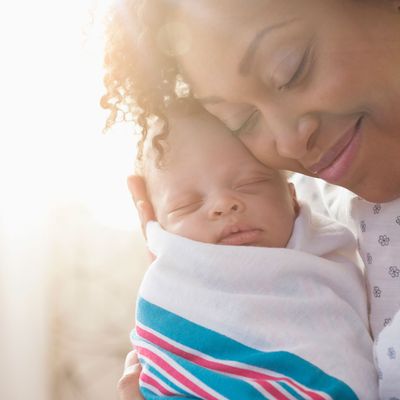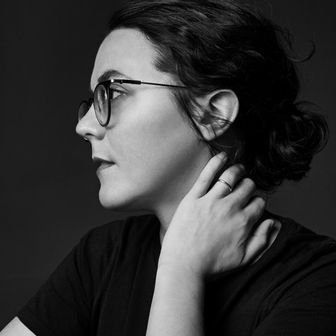
A month or two ago, a friend was telling me about discussing her pregnancy prospects with her ob-gyn. “Oh my god,” I interrupted mid-description. “Congratulations on your ample ovarian reserve!” My friend grinned and thanked me, but went on to admit something: She’d expected the doctor to be more excited about her age in respect to her fertility. My friend is 33.
We spent the rest of the conversation enthusiastically trading complex, not un-petty feelings about the fertility of younger women. They had no idea, we agreed, how soon their hazy projections of parenthood would turn into concrete dilemmas: Do I have enough money? Enough eggs? Enough time? They might be better at having children than we are, physically, and find themselves with more peers once they started. But they had no idea, we maintained.
Now, in light of new information from the Centers for Disease Control, my friend and I might have a slightly different conversation: For the first time, women our age — I’m 32 — are beating younger women, when it comes to the rate at which we’re having babies: According to data released last week by the CDC, the birthrate for women 30 to 34 was about 103 per 1,000 in 2016; for women 25 to 29, it was 102. A narrow victory, perhaps, but one nonetheless.
The average age a woman becomes a first-time mom still belongs to the 20s, though at 28, it’s creeped steadily older (as recently 2014, the CDC put the average age of first-time moms at 26). The CDC data, then, means some of the women raising the birthrate for the early 30s are having their first child, while others already have at least one.
Experts say women choosing to wait to become moms, plus the continuing drop in teen birthrates, are responsible for the CDC’s new figures. We live in a place where many of us are lucky to be able to choose and plan for motherhood (for now anyway) — but that doesn’t mean that choice isn’t a fraught one. When you know mothers make significantly less money, for example, how do you decide when is the ideal time to have a child?
In increasing numbers, we seem to be saying that time is in a woman’s early 30s. Theoretically, this makes a certain amount of sense: If you believe the 20s are for wildness, laying a career foundation, or some combination of the two, you’ve got those objectives out of the way. A study published late last year suggests accumulating life experience may even improve one’s ability to mother. Per the Times: “Older mothers were less likely to be harsh with their 7- and 11-year-old children, either in terms of scolding or of physical discipline, [researchers] found, and their children were less likely to have behavioral, social and emotional problems.” The study’s lead author told the paper older mothers “have more psychological flexibility, more cognitive flexibility, more ability to tolerate complex emotional stimuli from the children.”
I asked a friend who, like me, had her first child at 31 how she felt upon learning our age group is having the most babies. “Amazing,” she said. “Probably because it validates my decisions.” But when I brought up my hypothesis — that societal and economic realities had conspired to make the early 30s not just the most popular age to bear a child, but maybe the most logical — she disagreed. “I feel like 35 is the sweet spot,” she said. “In Brooklyn anyway.”
The idea of 35 as a sweet spot is an interesting one, because for childbearers, 35 marks a distinct shift. When a woman hits her mid-30s, she’s said to be of “advanced maternal age.” Advanced-maternal-age status changes the way pregnancy is experienced: Pregnant women over 35 undergo more testing and are monitored more closely. In some cases, age discounts women in their mid-30s from home birth or even being under the care of a midwife for a hospital birth. According to the CDC data, the birthrate for women 35 to 39 is 53 — about half of the rate for the early 30s. For women 40 to 44, it’s 11.
If you’re reading this website, you’re most likely against age-shaming moms, at least in theory — but you’ve also been primed to feel some unease about advanced maternal age, whether it’s your own or others’. Recently a new mom friend lowered her voice to ensure I wasn’t “over 35 … right?” Another told me she’d been thinking about planning her next pregnancy nonstop. “I think I need to get knocked up by my 35th birthday,” she said. “Ideally sooner, but that’s my deadline.”
Personally, I feel mixed. I like having the deadline of 35, and part of me was and is eager to meet it. In neighborhood pregnancy and mom groups, I felt insecure and threatened by the professionals moms or pre-moms discussing the many meetings requiring their presence, how their teams might fare without them, and plans to pump inside their private offices. They’d discuss yoga or meeting up to walk around the park and I’d think, At least I’m young(er).
But now that I have a child, advanced maternal age seems appealing. I would love to be closely monitored. I would love to receive any and all prenatal tests available, and to have a better chance of my insurance covering those tests. Perhaps I’ll be wiser and more patient in a few more years, with a bigger paycheck and more important work presence.
Most of all, however: Who cares? The fixation on age and pregnancy, just like parenting in America, is exhausting. Some people have children earlier, some later. Women, as they do in most aspects of life, bear the brunt of our limits as a species. We pay mothers less and categorize their biological realities in ridiculous ways. Once we become mothers, we are often quick to both defend our personal situations and long for those belonging to someone else. Women desiring children are incentivized to wait, but not too long. It’s impossible.
But maybe the impossibility of an ideal time for childbearing is the most freeing of all — if you’re going to be paid less, if your leave will be too short and too expensive, your child-care costs unaided by a government that claims women should work, why not have a child whenever the time feels right? On second thought: Talk to your doctor the instant you feel baby-curious. If you don’t like the response, get a new doctor. Looking back, that’s exactly what I wish I’d done. But at 31, I had no idea.





